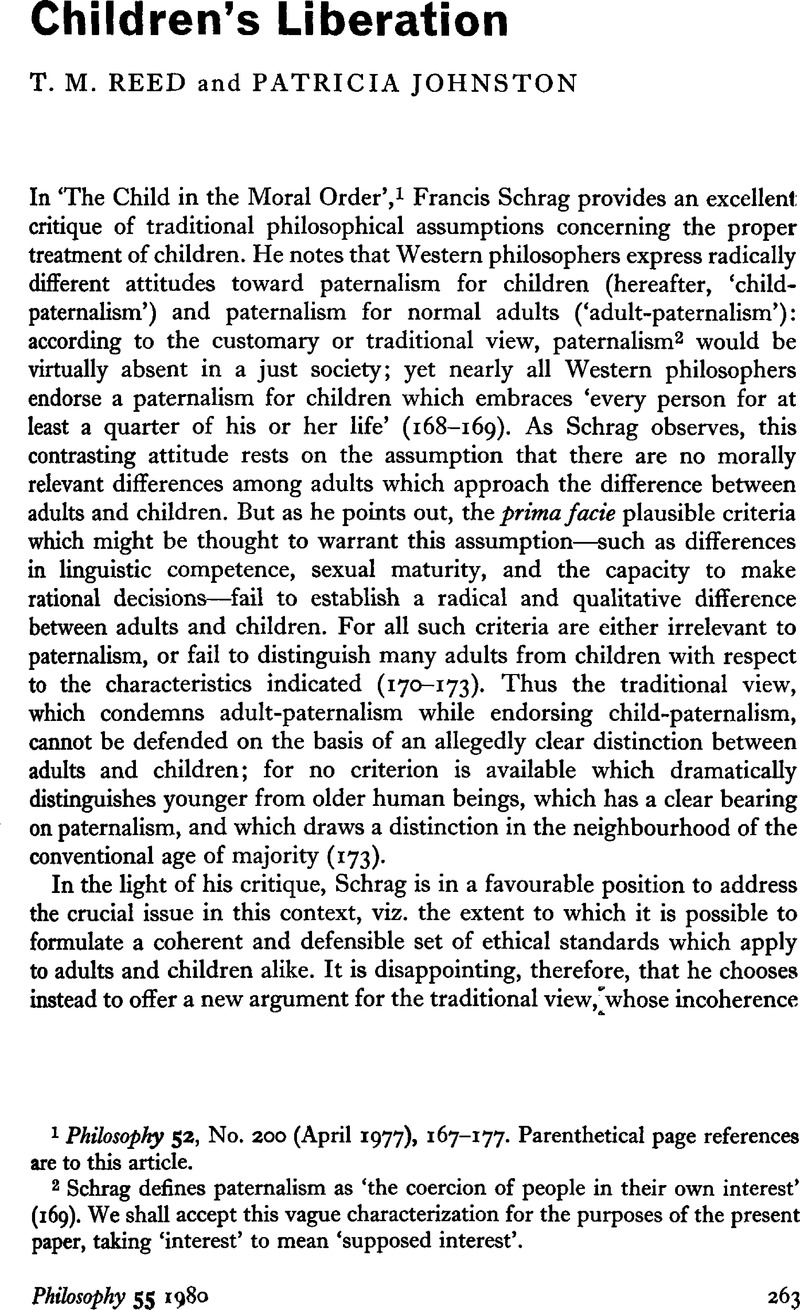No CrossRef data available.
Published online by Cambridge University Press: 30 January 2009

1 Philosophy 52, No. 200 (04 1977), 167–177Google Scholar. Parenthetical page references are to this article.
2 Schrag defines paternalism as ‘the coercion of people in their own interest’ (169). We shall accept this vague characterization for the purposes of the present paper, taking ‘interest’ to mean ‘supposed interest’.
3 See 167–168, where Schrag describes the child's (present) place in the ‘moral order’. He correctly observes that under a neutral description—i.e. one which makes no reference to children as the oppressed class—such a hierarchically ordered society would be almost universally condemned by philosophers.
4 The utilitarian alternative which Schrag has in mind is severely constrained; see 174ff.
5 It should be stressed that, in so far as it relates to paternalism, Schrag's main criticism of the traditional view is that it ignores obvious facts (see 170–173). It is indeed very obvious that ‘human development’ represents a ‘continuum’; Schrag's concern that his view may involve a ‘noble lie’ is therefore well founded.
6 In Philosophy of Education (Englewood Cliffs, N.J.: Prentice-Hall, 1976)Google Scholar, James McClellan takes some initial steps toward a defence of this claim; see especially Ch. 5.
7 For ample documentation of this failure, see Beatrice, and Gross, Ronald (Eds), The Children's Rights Movement: Overcoming the Oppression of Young People (New York: Anchor Books, 1977).Google Scholar